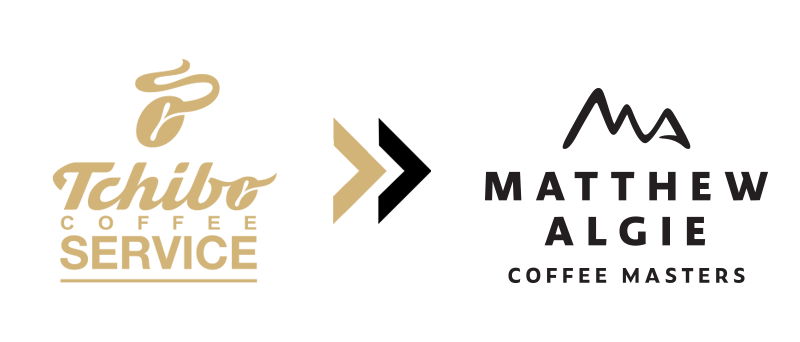What are origin trips all about and why are they so important?.
July 20th, 2023 | Sourcing & Sustainability
What are origin trips all about and why are they so important?
As Head of Coffee Sourcing at Matthew Algie, I feel very privileged to have had the opportunity to travel to many of our producer partners across the globe. When I share my latest coffee origin travel plans, I am often asked by colleagues what the format of these trips is and why they are necessary. For a coffee roaster like Matthew Algie where coffee sourcing has been built on long-term relationships with producers, therefore investing the time and money into these trips is fundamental and part of what we do. I will try and share a little more insight into what a ‘typical trip’ may involve and uncover some of the many benefits of these.
Where do we go and how long for?
We tend to focus our visit plan on our key origins both from a customer blend and volume perspective. Currently, the majority of our volume is sourced from Peru, Honduras, and Brazil and within each of these countries we will have several partners which we regularly source from. Our aim is to travel to these at a minimum on a bi-annual basis but if we have projects in place which require evaluation then this maybe more frequent. When planning these trips they never seem long enough, but we need to balance this against our time out of the office and away from our families, so typically we spend around 10 days away.
What does the itinerary look like?
The distance between each producer will determine how many producers we visit on each trip and how long we stay at each. This is a fine balance between visiting as many of our partners as we possibly can (and would like to) but ensuring the visit isn’t so speedy that it becomes rushed but delivers maximum value for us and our producers. A typical day with a producer will involve visiting at least one of their members farms, a cupping where we try a selection of their current crop coffees, a visit to their export mill to see the processing of the green beans and lots of discussions with their team around forward requirements, quality, challenges they’re facing, project support and sustainability.
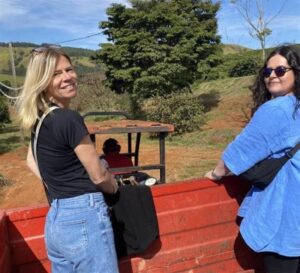 What do we hope to achieve during these visits?
What do we hope to achieve during these visits?
These visits can be broadly divided into 3 main areas, and each is equally important in strengthening our partnership:
- Forecast requirements and quality – these face-to-face meetings allow us to openly share our own forward business plans and requirements versus their expected harvest times and output. Tasting coffees together allows us to share our preferences and align with our customer blend requirements.
- Knowledge sharing – there is so much to learn from these visits from processing methods to new varietals, ways of adapting to climate change and building a sustainable business plan to support our long-terms relationships. For both partners to be successful we need to understand each other’s needs and through absorbing such information and sharing this with our wider businesses, whether for marketing purposes or simply extending our own colleagues’ knowledge, is imperative.
- Compliance & traceability – we work so far away from many of our suppliers so when developing new relationships, we initially must rely on desk-based research to understand our suppliers as best as we can. These visits enable us to back this data up and allow us to explore the accuracy of this data and identify any potential weaknesses which in turn we can work together to correct. This then becomes embedded in our approach to monitoring and evaluating all our partners in origin.
So are there any downsides to these trips?
The lack of sleep. The long and often uncomfortable journeys. Just to get to the first producer will often involve at least 2 flights, the latter flight typically being 10-12 hours and then on arrival a journey by car of several hours, not to mention the hanging around airports in between. The distance between producers can often be several hours or more internal flights and let’s just say the roads aren’t always the best condition and some of the driving styles may not be quite as steady as we’re used to. At times the food maybe questionable or at least different to what you may expect, for instance in Peru fried (whole) guinea pig is considered a local speciality! The many insect bites and the scary mentions along the way of big spiders, giant cats, alligators, and snakes (to name a few) which are apparently frequent visitors to many of the farm areas are also not one of the most appealing parts of these trips!
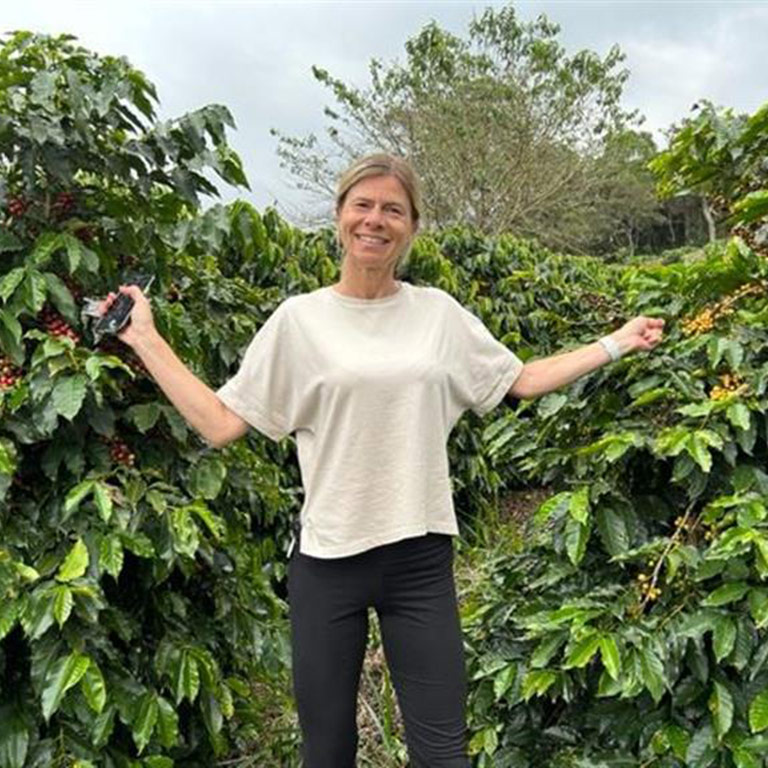 |
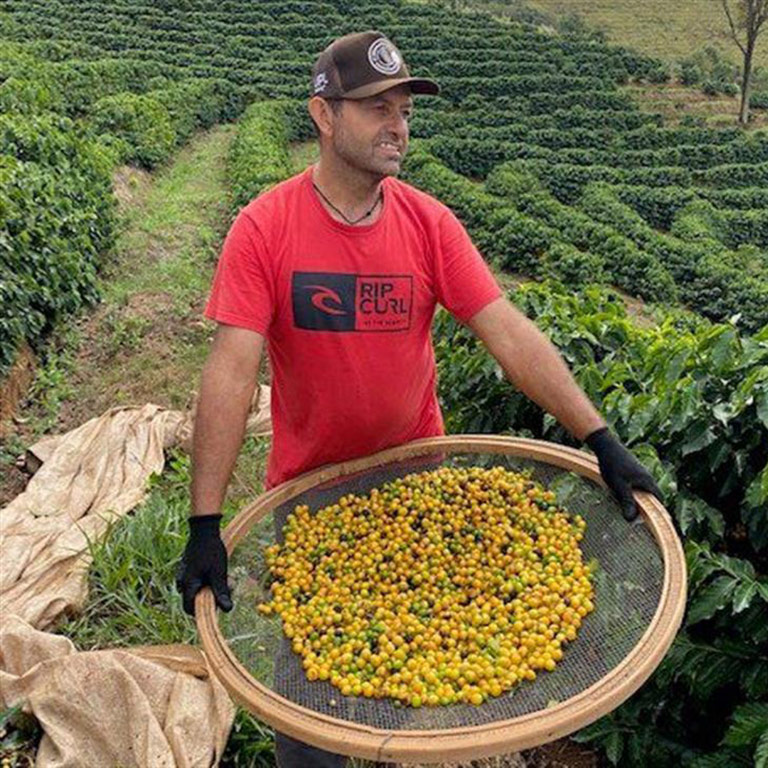 |
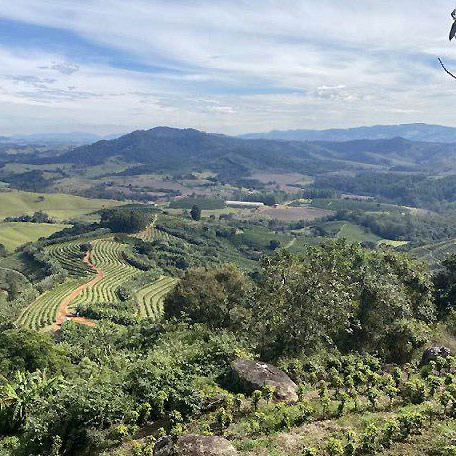 |
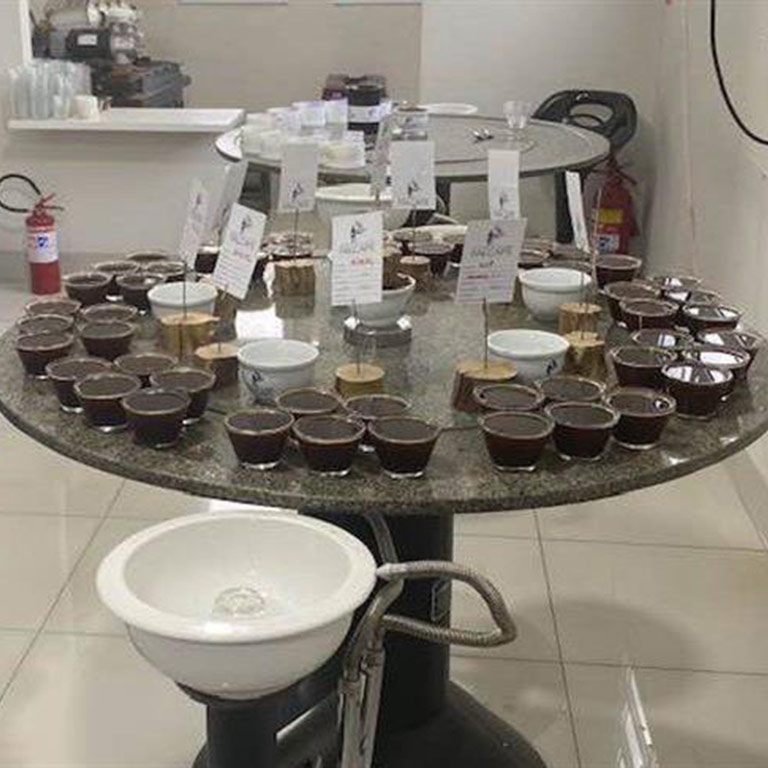 |
And what are the best bits?
If I could apply a weighting to the worst bits versus the best bits, it would be 10/90, the best bits far outweigh the not so good. The most special part of every trip for me is stepping foot on the farm of one of our coffee producers and seeing the results of all their hard work in the form of juicy ripe cherries gripping onto the branches of the coffee trees. This is then compounded by hearing each producer’s individual story of how and why they became involved in coffee farming and seeing the pride and passion they quite rightly demonstrate as we chat on their farm. One of the best bits about a career in coffee sourcing is the fact that there is so much to learn, and everything continues to evolve, travelling to producers massively enhances this learning as you discuss processing methods, new varietals, and the ways they are adapting to climate change. When reflecting on the best bits, it would be an injustice to not mention the delicious food and different cultures. There are not many business trips where you get to visit the homes of locals and eat the amazing freshly prepared food and exotic fruits prepared for you and local liquor too of course!
And in summary…
The value in terms of knowledge sharing and meeting producers in person clearly outweighs the financial cost and time associated with travel. As we move towards a world where so much more is focussed on technology and remote working, we must be mindful not to ignore the importance of developing in person relationships and having meaningful discussions especially when working with an agricultural product such as coffee which provides an important income to many small holder producers and their families, particularly at a time when coffee production has never been so challenging.
If you can set aside budget for origin travel, whether a one off or regular, then get your camera, and notebook ready, pack a few essentials and prepare yourself for the most memorable coffee adventure.
